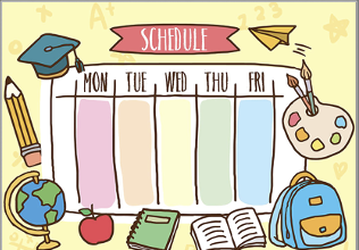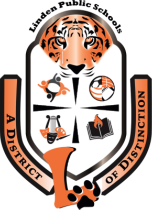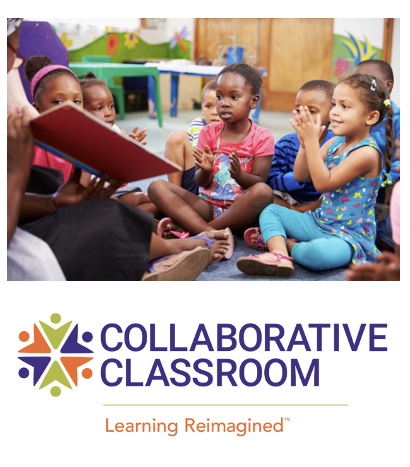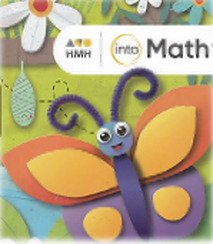Literacy
Collaborative Classroom Webisite: www.collaborativeclassroom.org/programs/collaborative-literacy/
|
Kindergarten literacy forms the foundation for a child's lifelong learning journey. In this critical stage of early education, children are introduced to the fundamental skills necessary for reading and writing. Through interactive and engaging activities, kindergartners are exposed to letters, sounds, and phonics, helping them develop phonemic awareness. They also explore sight words, vocabulary, and basic sentence structure, fostering their ability to comprehend and communicate effectively. Additionally, kindergarten literacy emphasizes the joy of reading, sparking a love for books and storytelling that will continue to grow as children progress through their educational endeavors.
COMPONENTS OF LITERACY: •Phonemic Awareness - the ability to hear, identify and utilize individual sounds in spoken words •Phonics- the relationship between the letters of written language and the sounds of spoken language •Fluency- the capacity to read text accurately and quickly •Vocabulary- the words students must know to communicate effectively •Comprehension- the ability to understand and gain meaning from what has been read |
Literacy Curriculum
•Comprehensive, research-based reading instruction that develops both foundational skills and comprehension
•Whole-class, student-centered writing instruction that teaches process, conventions, and a wide array of genres using a workshop model •High-quality, high-interest fiction and nonfiction texts selected to support the instructional focus of each lesson •Selected units use texts connected by a science or social studies topic that build students’ knowledge across the grade level and across their years of instruction |
TYPICAL KINDERGARTEN DAY

•Opening Groups/ Phonics
•Language Arts Block
•Lunch/ Recess
•Specials: Gym, Music, Technology, Word Language & Art
•Math Block
•Science/ Social Studies
•Closing Group
•Language Arts Block
•Lunch/ Recess
•Specials: Gym, Music, Technology, Word Language & Art
•Math Block
•Science/ Social Studies
•Closing Group
MATHEMATICS
Into Math Webiste- www.hmhco.com/programs/into-math
Kindergarten math introduces young learners to the exciting world of numbers, patterns, and problem-solving. Through hands-on activities and interactive games, kindergartners develop foundational math skills that form the basis for their mathematical understanding. They learn to count, recognize and write numbers, and explore basic operations like addition and subtraction. Kindergarten math curriculum also focuses on shape recognition, spatial awareness, and measurement concepts, allowing children to understand the world around them in mathematical terms. By engaging in math activities, kindergartners develop critical thinking skills, logical reasoning, and the ability to analyze and solve problems. This early exposure to math sets the stage for a lifetime of mathematical learning, building confidence and proficiency in this essential subject.
|
Counting and Cardinality •Know number names and the count sequence. •Count to tell the number of objects. •Compare numbers. Operations and Algebraic Thinking • Understand addition as putting together and adding to and understand subtraction as taking apart and taking from. Number and Operations in Base Ten • Work with numbers 11–19 to gain foundations for place value. Measurement and Data •Describe and compare measurable attributes. •Classify objects and count the number of objects in categories. Geometry •Identify and describe shapes. •Analyze, compare, create, and compose shapes. |
Science
Kindergarten science introduces young children to the wonders of the natural world and sparks their curiosity about the environment. Through hands-on experiments, observations, and exploration, kindergartners develop a basic understanding of scientific concepts. They learn about living things, their habitats, and the characteristics that make them unique. Kindergarten science also covers topics such as weather, seasons, and the properties of materials. By engaging in age-appropriate experiments and activities, children learn to make predictions, gather data, and draw conclusions. This early exposure to scientific inquiry fosters critical thinking skills, curiosity, and a sense of wonder, setting the stage for a lifelong love of learning and exploration in the field of science.





